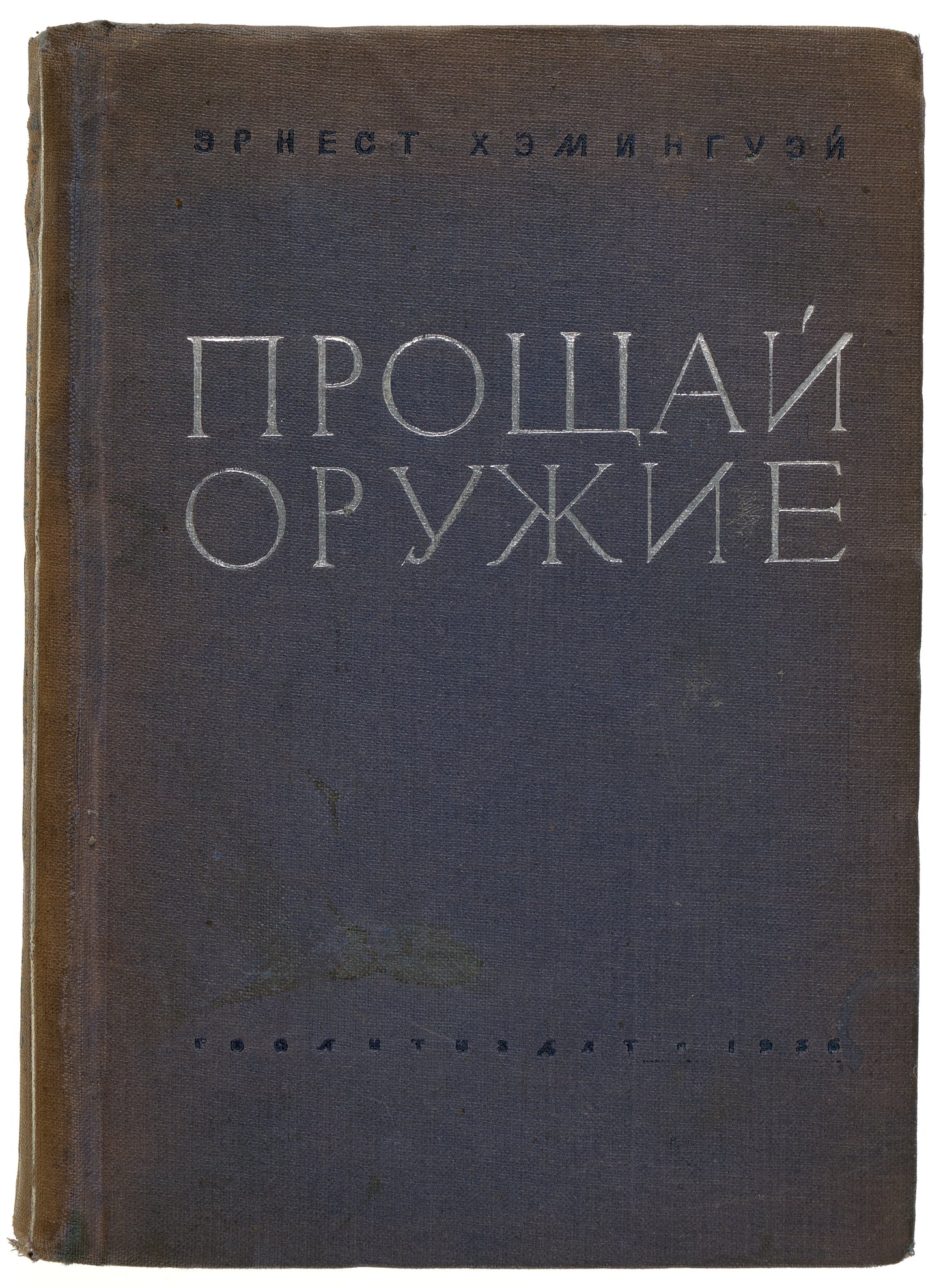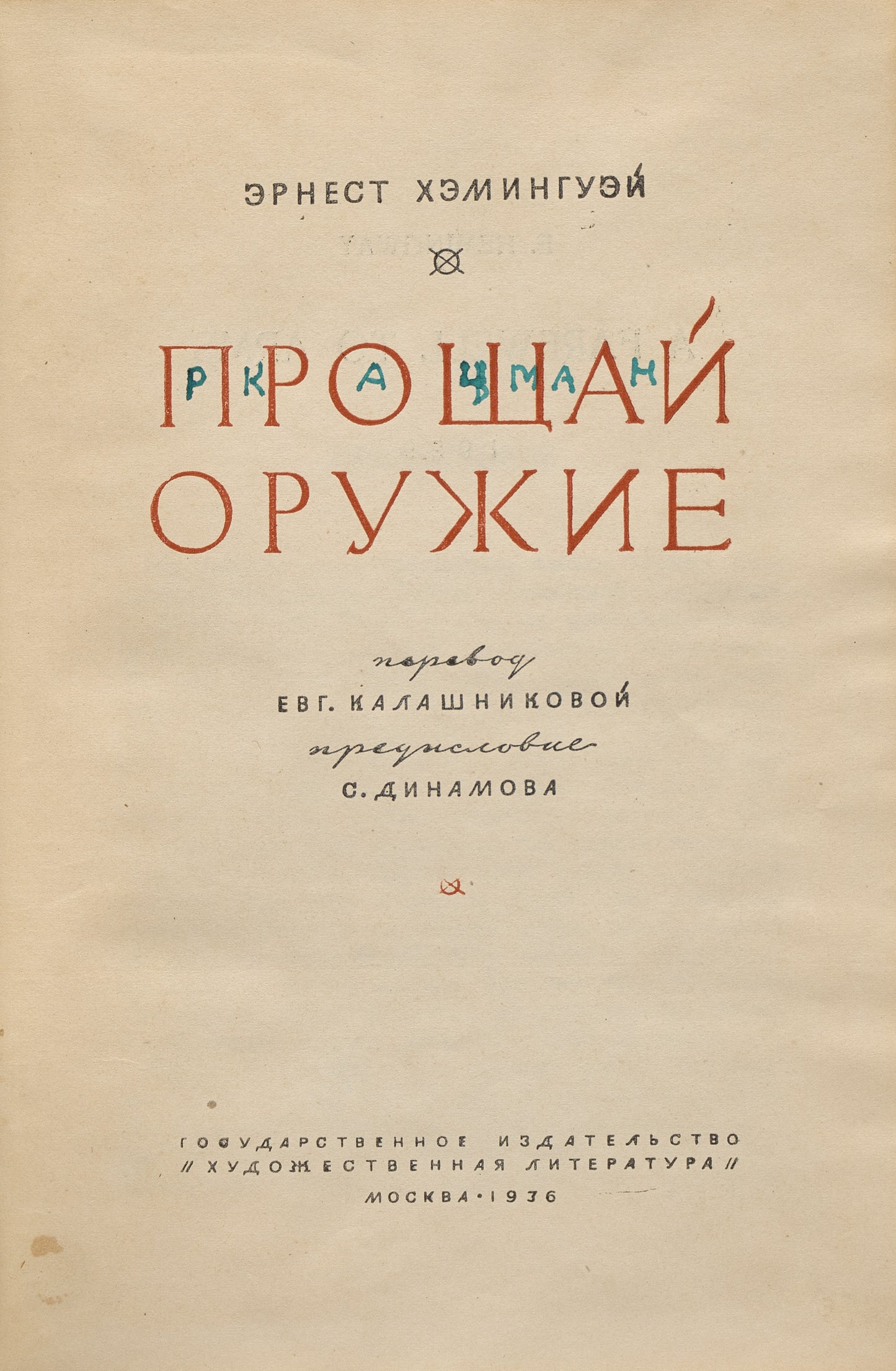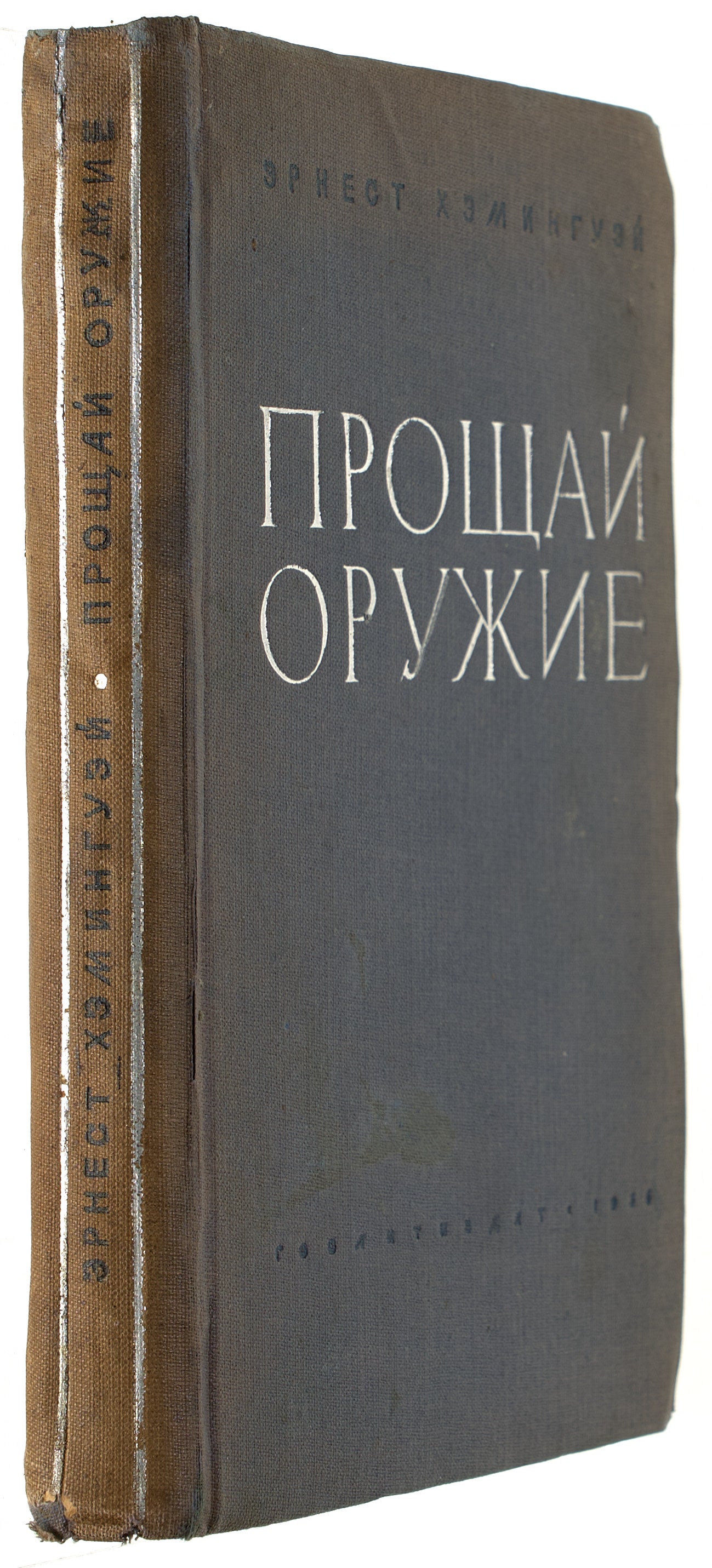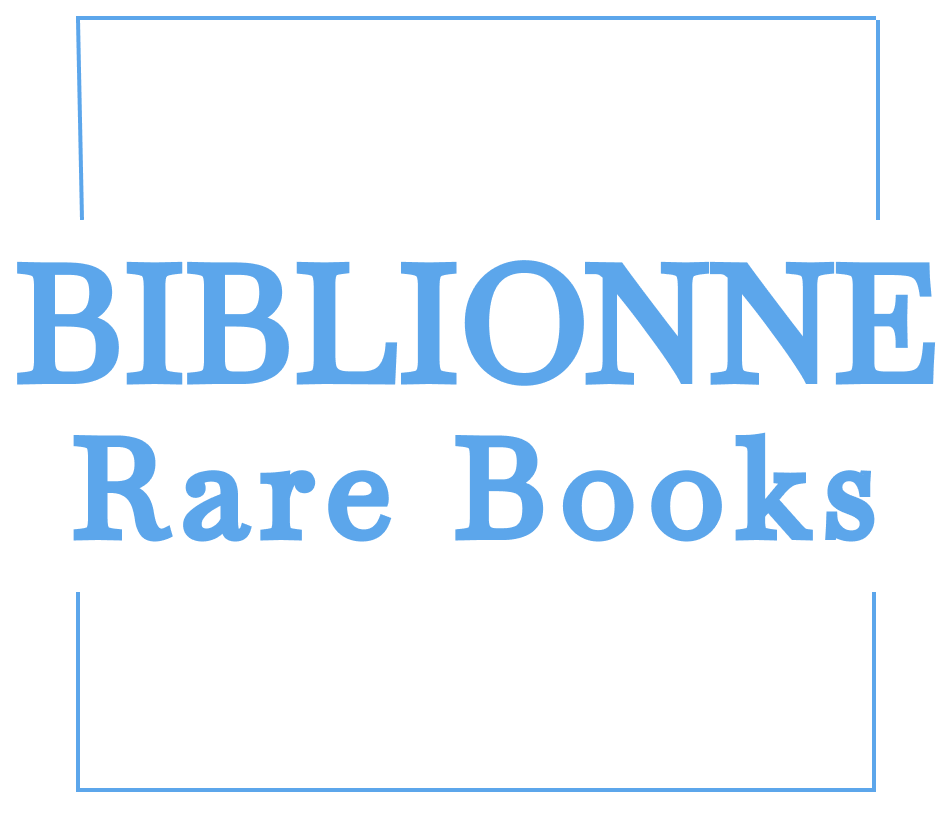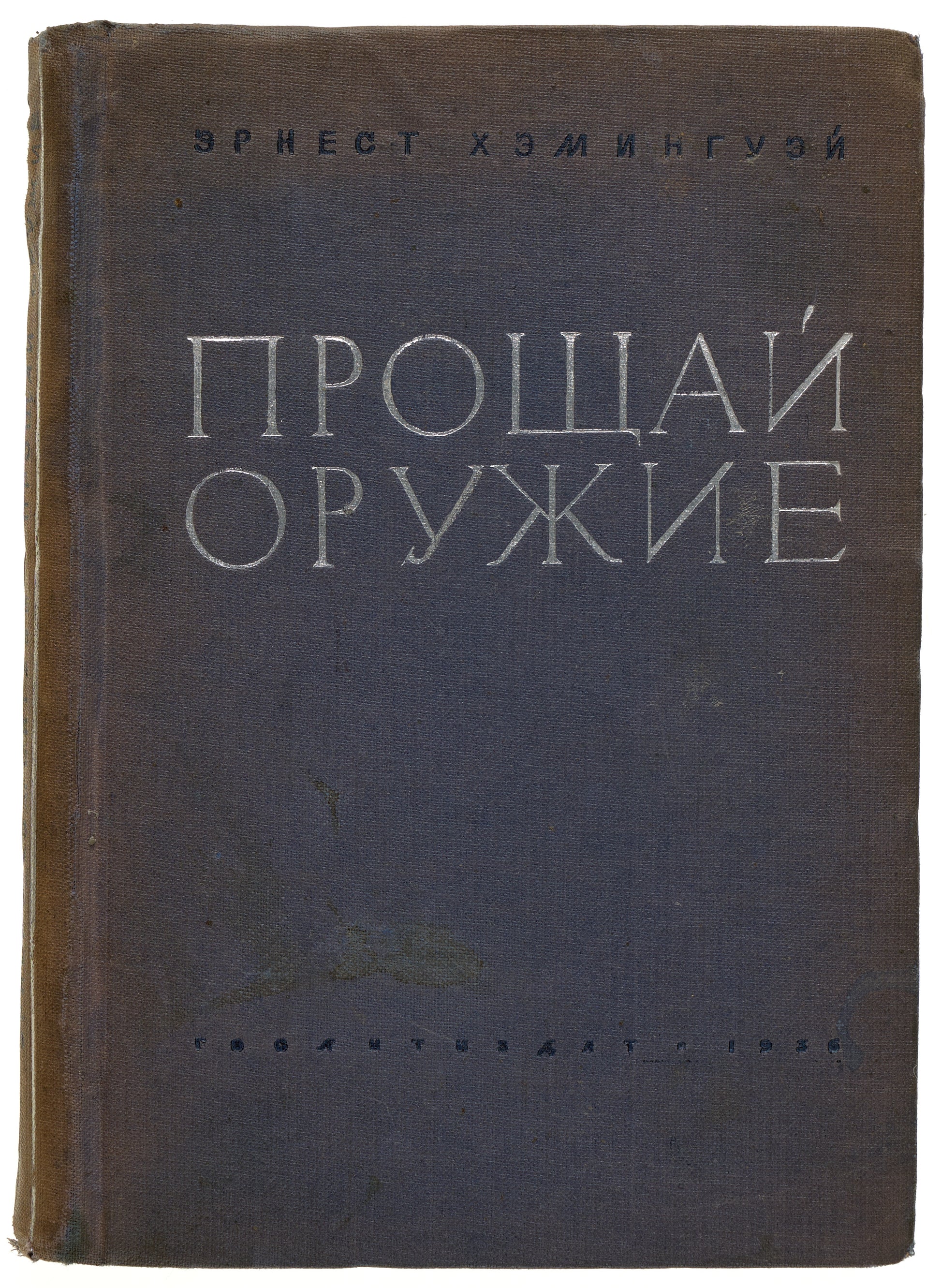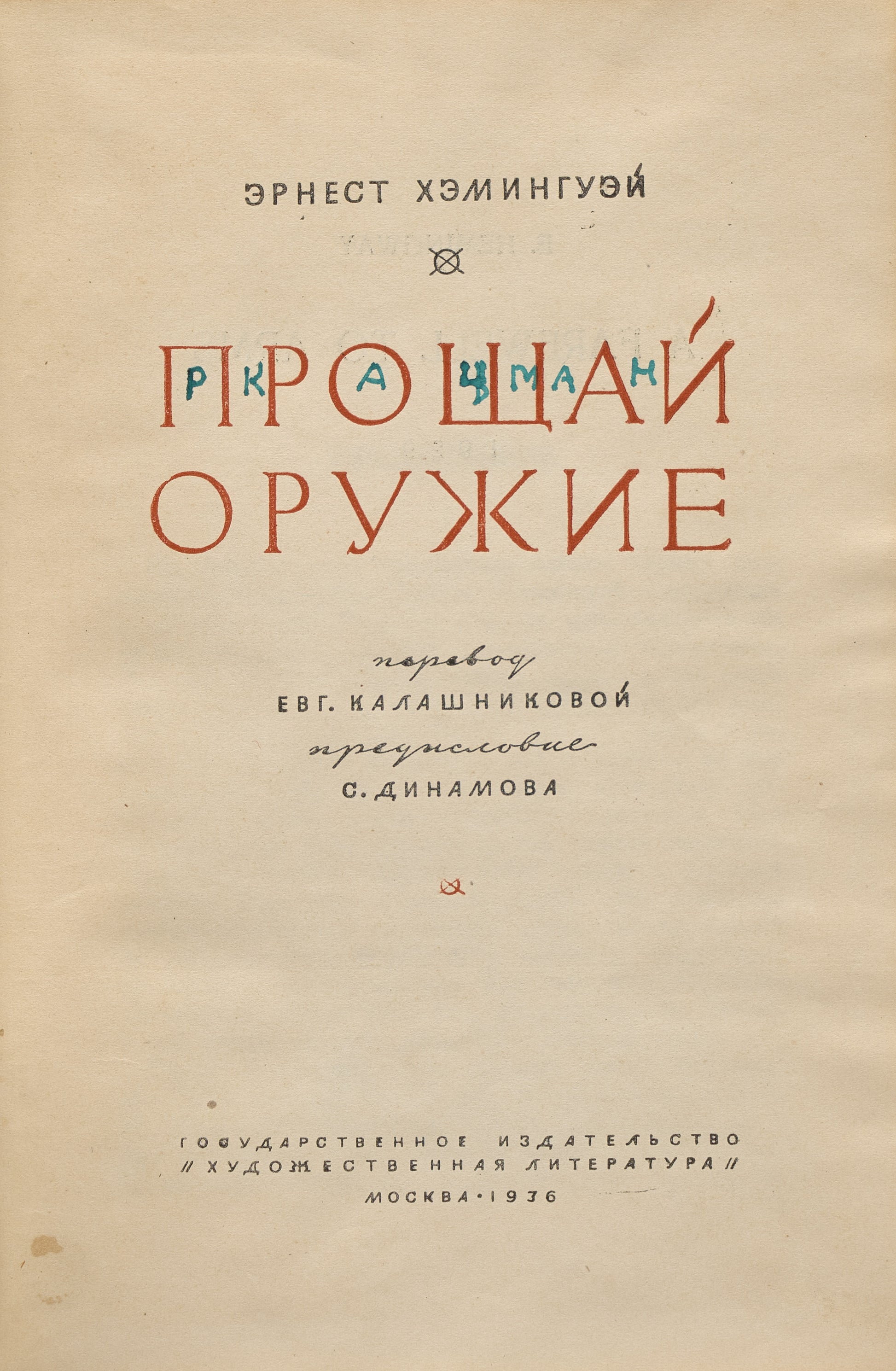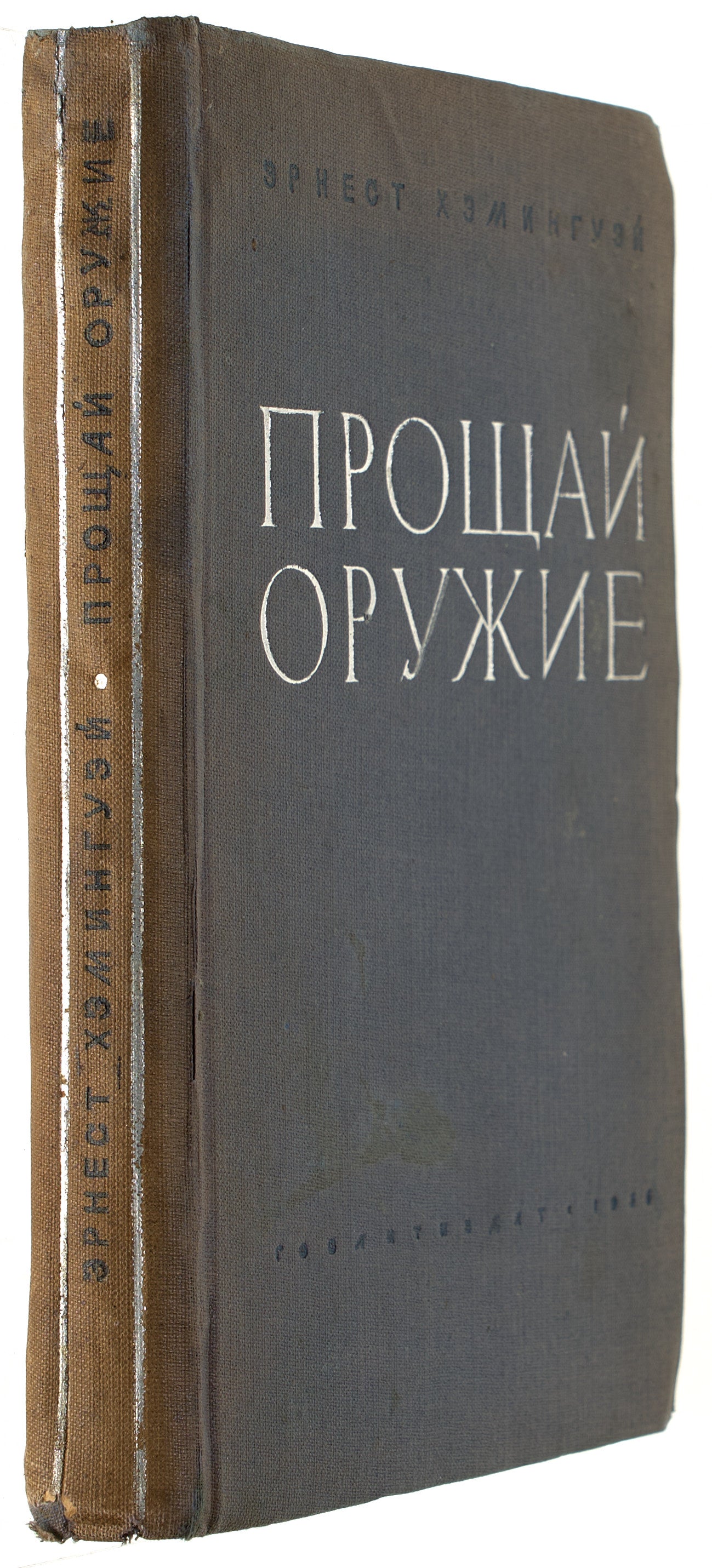Hemingway, Ernest
A Farewell to Arms. Rare first Russian book edition.
A Farewell to Arms. Rare first Russian book edition.
Couldn't load pickup availability
Hemingway, Ernest [A Farewell to Arms]. Proshchai Oruzhie.
Translation by Evg. Kalashnikova.
Preface by S. Dinamov.
Moskva, Gosudarstvennoe Izdatelʹstvo “Khudozhestvennaia Literatura”, 1936.
8vo, 338, [6] pp.
In original grey cloth. Issued without dust jacket. With errata slip.
Near good condition, cloth darkened with some spotting, corners a little bumped, owner marks to title, boards lightly bowed.
Rare first Russian book edition. Hemingway's third Russian book. All Russian editions of Hemingway's works printed before WWII are rare. One of 10 000 copies published.
The first excerpts from Hemingway's novel 'A Farewell to Arms' (1929) appeared in Russian in 1934, published in the magazine 'Znamya' (No. 4) and translated by Petr Okhrimenko. Two years later, this translation was published in its entirety in the same magazine. Around the same time, another translation by Evgeniia Kalashnikova (1906–1976) emerged: first as a fragment in 'Internatsional’naya Literatura' (with the note 'authorized translation') and later as a standalone book.
Kalashnikova was part of the 'workshop school' of Ivan Kashkin, a literary critic and translator who was 'responsible for Hemingway reputation in the USSR'. She, along with Nataliia Volzhina, later prepared the first Russian translation of 'For Whom the Bell Tolls'.
The preface to the book was written by literary critic Sergey Dinamov (1901–1939), who also headed the Anglo-American section of the State Publishing House and served as Director of the Institute of Red Professors. Dinamov was arrested during the Great Purge in September 1938 and executed.
It is important to highlight the significant impact this book had on the Soviet intelligentsia. The prominent literary critic and memoirist Lidiya Ginzburg recalled that Anna Akhmatova urged her to read 'A Farewell to Arms', saying, 'Read this by all means. It’s very interesting'. Ginzburg later noted that this novel epitomizes 'essentially everything that the writer Hemingway has to say'. For Soviet readers, one of the most striking aspects of the novel was how 'people talk with each other in bed'. She observed, 'It turns out that they talk about everything under the sun. <…> These conversations contain Hemingway’s conception of the quintessential contemporary Western person' (Burak, Alexander The "Americanization" of Russian Life and Literature through Translations of Hemingway’s Works. 2013).
This copy comes from the library of photographers Vera Petrusova (1912–1998) and Georgii Petrusov (1903–1971). Georgii worked for the renowned magazine ‘USSR in Construction’, where he collaborated with El Lissitzky, Alexander Rodchenko, Vera Stepanova, and Solomon Telingater. Vera Petrusova is best known for her theater photography.
Libman, # 6685.
OCLC locates one copy of this edition only: in the Yale University Library.
